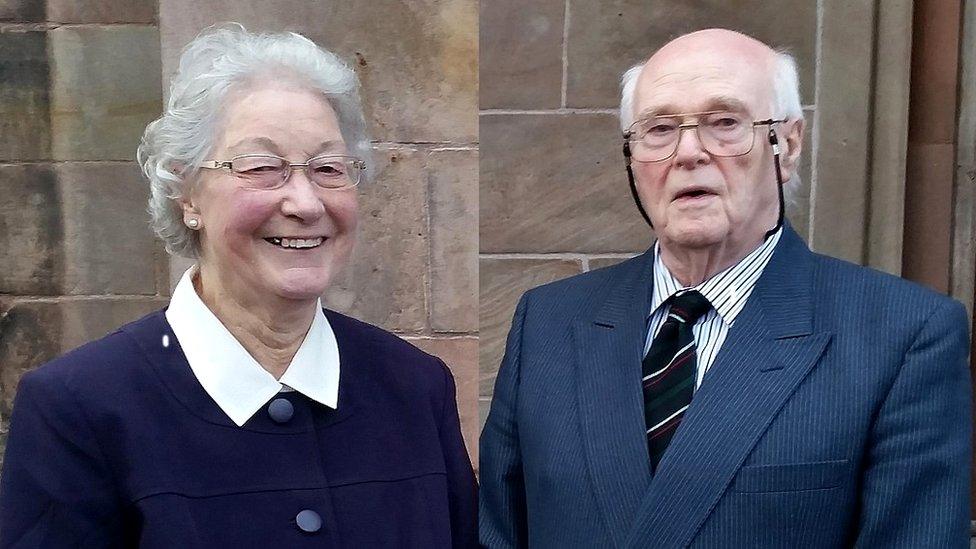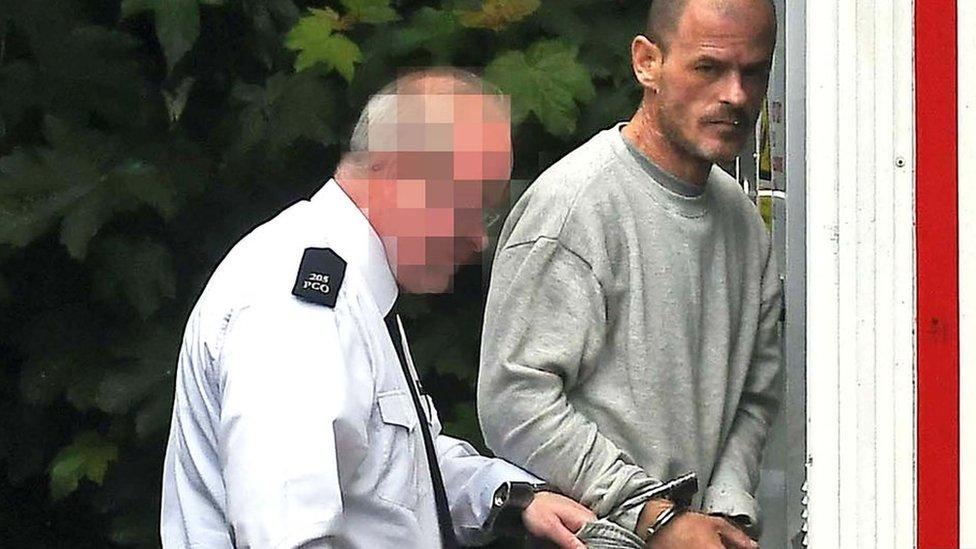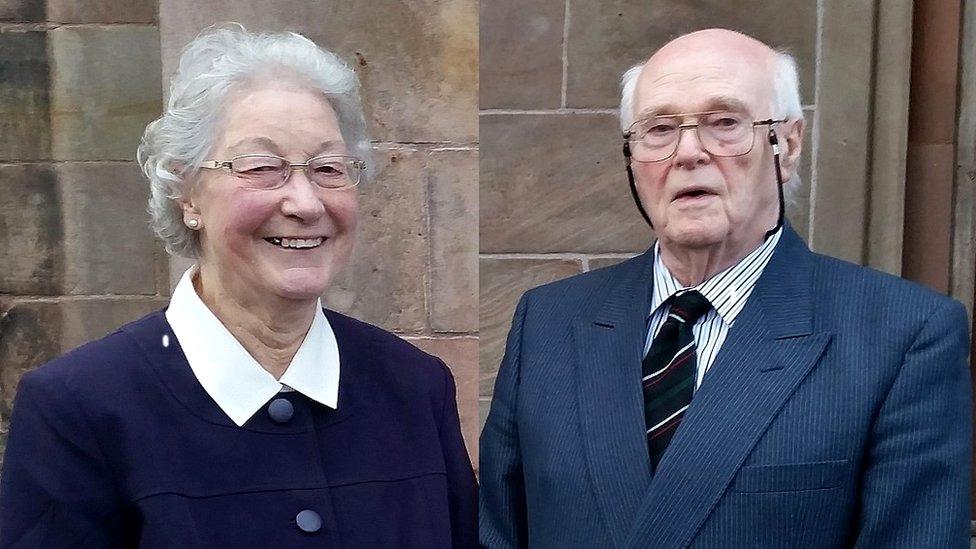Cawdery killings: Killer tried twice to get medical help
- Published

Marjorie and Michael Cawdery were killed in a stabbing at their home in Portadown in 2017
A man who stabbed an elderly couple to death had gone to hospital twice seeking help for his mental health issues in the days leading up to the attack, an inquest has heard.
Thomas Scott McEntee attended Daisy Hill Hospital two times on 24 May 2017, two days before he attacked Michael and Marjorie Cawdery, both 83.
The couple were stabbed by McEntee at their home in Portadown, County Armagh.
He was suffering from paranoid schizophrenia.
He has been sentenced to a minimum of 10 years in prison.
On Wednesday, the court heard that McEntee, from Kilkeel, County Down, had walked into the Southern Trust's Mental Health Department at Daisy Hill without an appointment and asked for medication.
There was no medical history about McEntee held by the Southern Trust and the Home Treatment Crisis Response Team were contacted.
All six members of the team who were based at the hospital, were out on calls with clients.
The court heard that some were uncontactable because of poor mobile phone service in the area.
A receptionist told the inquest that it had taken 45 minutes to get in contact with anyone from the team.
McEntee initially agreed that he would wait until one of the team could return to Newry to meet him.

Thomas Scott McEntee at an earlier court hearing
However, he left after waiting about an hour and a half at 16:30 BST. He had not been seen by any medical professionals.
He returned to the hospital four hours later. This time he went to the emergency department.
'Not taking medication'
A junior doctor who was working there told the court that he had said he had suffered a sudden deterioration in his mental health in the previous few days and that he had self harmed.
He said he had previously been in Londonderry and that his history would be known to the Mental Health Team there. He said that he had not taken his medication for the three days prior to going to the emergency department.
The doctor said McEntee had "life not worth living thoughts" and he told her that he was unable to keep himself safe if discharged.
The doctor called the Mental Health Team and spoke to a senior mental health nurse at Craigavon Hospital.
He said that because of the lack of medical history at the Southern Trust, he would contact the Western Trust, where McEntee had been receiving treatment, and would get back to her.
The doctor told the court that she believed that a mental health assessment was needed as McEntee had shown suicidal ideation and had self harmed on that day.
However, when the call to the mental health team at Craigavon was returned, she was told that the patient did not need an assessment as his "life not worth living thoughts" were chronic and due to his disorder and that he could be discharged and would be contacted by the team the following morning.
Asked if she felt an assessment was warranted, the doctor replied "yes".
When the coroner asked if she had pushed back or debated the decision, she said she felt that the mental health senior nurse had been using "experience and expertise to make that judgment".
She said that she had made the referral and she believed the mental health nurse's decision had been made using information from the Western Trust and with greater professional experience.
Discharged
Thomas McEntee was discharged with a plan that he should call the emergency department and supply a phone number so that he could be contacted by the crisis team the following day.
He left after a social worker arranged homeless accommodation for the night at a local hotel. He had no phone.
It was also revealed in court that the on duty ED doctor had been unaware that a doctor had to fill in a section of the Mental Health Risk Assessment form.
Counsel for the Cawdery family argued that if the form had been filled out correctly, McEntee would have been deemed medium risk and could not have been discharged without an assessment.
The lead mental health nurse with the Home Treatment Crisis Response Team told the court that the system had "not worked as well as it should have".
He said new procedures meant that a shift coordinator can be contacted if all members of the team are out on calls. This means clients will be seen more quickly.
A new paging system is also being introduced which would reduce the issue of poor mobile signal reception in south Armagh and Mourne.
The inquest continues.
- Published12 June 2023

- Published17 July 2019

- Published28 June 2018

- Published22 June 2018
